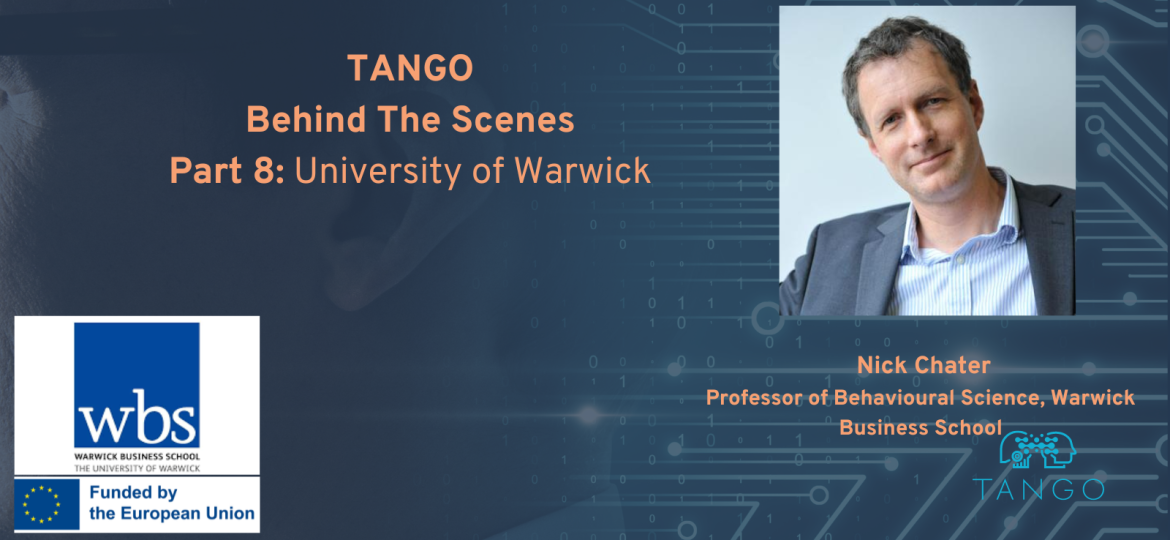
THIS WEEK, IN THE ‘BEHIND THE SCENES’ SERIES, WE’RE SPEAKING WITH Professor of Behavioural Science, at Warwick Business School, NICK CHATER. NICK WILL BE TELLING US ABOUT HIS ROLE AND THE ROLE OF UoW WITHIN THE TANGO PROJECT.
Thanks for speaking to us today. Could you start by introducing yourself and telling us where you are based?
My name is Nick Chater and I am Professor of Behavioural Science, at Warwick Business School, which is part of the University of Warwick.
How would you describe TANGO with three words only?
Coordinating humans and AI.
What is your main task in the TANGO project?
The focus of our work at Warwick is understanding how insights from social interaction between people can help us improve the “social” interaction between humans and AI systems. In particular, we have been developing a theory of social interaction called virtual bargaining, which assumes that social interaction is a continual process of negotiation is about actions, and the meaning of communicative signals (e.g., who are we pointing to? Or which “Andrea” are we talking about?). When these negotiations go well, we feel that the interactions success, when they do not, we continually clash and misunderstand each other. Most of the time, we want AI systems to interact with people smoothly as possible, so a crucial challenge is how to do this.
What do you like most about your role?
This is a great opportunity to work with an interdisciplinary team across Europe considering not just foundational questions but actually building new AI methods, and practical systems.
How do your professional interests match the objectives of TANGO?
This project is a great fit with my background interests. I have previously collaborated with a former post-doc, Jennifer Misyak, on drawing lessons from human social interactions to understand how autonomous vehicle to behave. The Tango project is a very natural and exciting next step.
What is unique about TANGO in your opinion?
The focus on coordinating human and AI systems is very distinctive and of crucial importance.
What do you see as the biggest challenge for TANGO?
Bringing together the insights of many different research groups across disciplines and working on different topics for a very fast paced project.
Thank you for taking the time to speak to us, Nick. We look forward to more updates from the team at UoW.
To keep up to date with the Behind the Scenes series and all TANGO updates, make sure to follow us on TANGO (@TANGO_horizon) / X (twitter.com) and TANGO LinkedIn